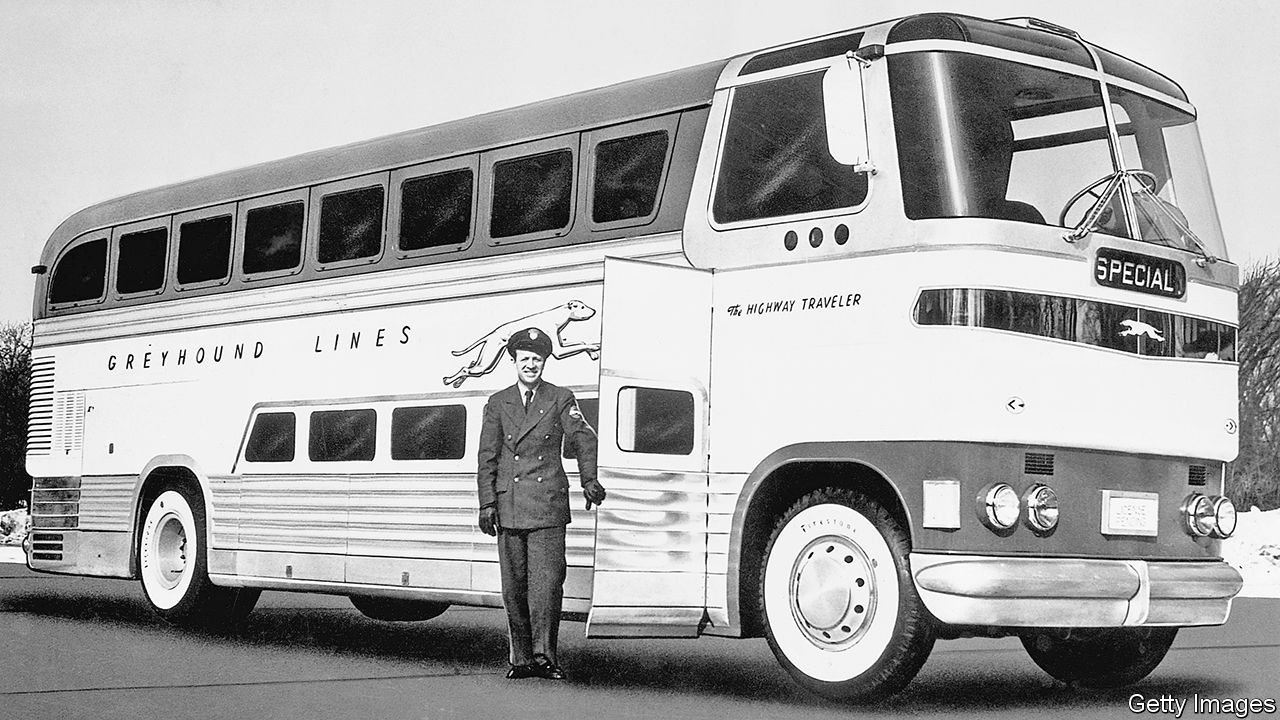
IN THE past, coach travel was seen as somewhat glamorous. That is perhaps an odd legacy of a Clark Gable film from 1934 called “It Happened One Night”, about a romance between two passengers travelling on a crowded bus going from Florida to New York. But now many people look down on it as something used only by time-rich, money-poor people—at best by students going on a Greyhound bus across America for the summer on the slimmest of budgets; at worst by homeless people who “carry all their stuff in plastic bags”, as one of Gulliver’s interviewees unsympathetically put it.
But when Gulliver went on a Flixbus coach in Germany recently, he was very surprised to find business travellers on board:
-
Can coach companies lure business people on board?
-
Partisanship at Eurovision is becoming more blatant
-
Bavaria is the latest place where the church and Christian politicians are at odds
-
“Cold War” is a faultless romantic epic
-
Why has Argentina called in the IMF?
-
When did Donald Trump make it “crystal clear” the travel ban was not a Muslim ban?
On the firm’s flagship route from Nuremberg to its hometown of Munich, winding between snow-capped peaks and picture-book villages in Bavaria, its bus passengers look distinctly affluent. Many on board play on tablets to pass the time; shirts and ties are common. One discerning traveller reads The Economist.
Flixbus’s raison d’être is to expand the market through lower fares and attracting new demographics to try long-distance coach travel. As explained in this week’s issue, the firm has already had great success at doing this: since Flixbus launched its first route in 2013, it has grabbed 90% of the market in Germany, and will launch in America on May 15th.
Can the firm do the same with business travellers? The German startup’s co-founder and co-chief executive, Jochen Engert, says that you can see many more people with suits on the Flixbus route between Zurich and Munich, where the trip by coach is cheaper than flying and faster than by rail. Thomas Ableman, the chief executive of Sn-ap, a new coach startup in Britain, also hopes to lure business people on his routes, using luxury buses with tables and Wi-Fi for working that are used by Premier League football teams during the week.
But coaches still have a long way to go before they become a mainstream form of travel for business people and for one big reason: road congestion. Gulliver remembers vividly that the last time he took a coach between London and Paris, half the time between the British capital and the English Channel was taken up by traffic jam in the London suburbs.
Source: economist
Can coach companies lure business people on board?